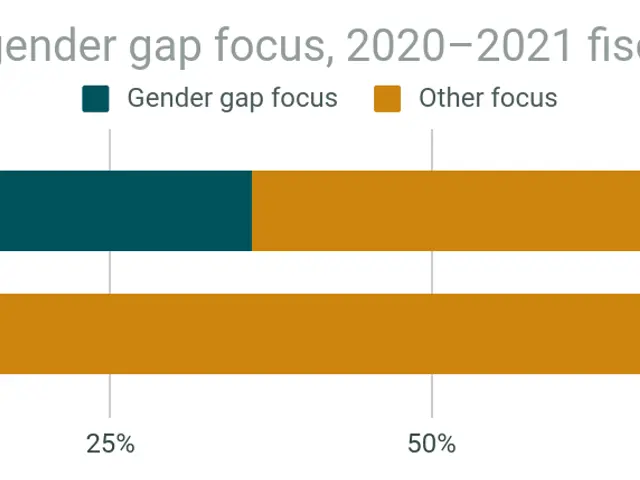What's the reasoning behind refraining from cryptocurrency purchases?
In the ever-evolving world of finance, cryptocurrencies have made a significant impact. However, they are not without their challenges and controversies.
Governments around the globe are considering enforcing trading bans on cryptocurrencies within their countries. The primary reason behind this is the prevention of transactions associated with criminal activities such as drug deals, money laundering, contract killings, extortions, and ransom payments.
One of the significant risks associated with cryptocurrencies is the potential for hacker attacks on wallets, crypto exchanges, and other related platforms. Although such incidents are relatively rare, they could lead to a dramatic decrease in acceptance and lower prices.
Investors focused on sustainability (ESG) find it challenging to invest in cryptocurrencies due to their high energy consumption. In fact, the energy consumption of cryptocurrencies exceeds the total consumption of some states and produces nothing.
The value of cryptocurrencies is primarily based on the hope of continued demand and limited supply. The first miners of cryptocurrencies stand to make the most money, but only if there is sufficient demand and scarcity. However, a trading ban or strict regulations could lead to significant restrictions on the use of cryptocurrencies and falling prices.
It is important to note that cryptocurrencies were invented by computer scientists and programmers with a marketing understanding. Asset management firm Frankfurt Vermoegen does not invest in cryptocurrencies for clients, unless specifically requested.
Trading is already heavily restricted in countries like China. Cryptocurrencies lack a raw material or a means of payment backed by a secure institution, which adds to the regulatory challenges.
The recent extortion of the Colonial Pipeline on the US East Coast involved a ransom paid in Bitcoin, highlighting the role of cryptocurrencies in illicit activities. Quantum computers, which may become available within the next five years, could significantly speed up the generation of coins, increasing supply and causing prices to plummet.
In an effort to address these issues, institutions such as the European Commission and other EU bodies have made efforts to improve cryptocurrency regulation by proposing stricter supervisory frameworks and addressing risks like money laundering through advanced AI systems. Regulatory bodies in Europe continue to refine financial market rules in line with international standards, including Basel III updates, which impact crypto-related financial institutions.
As the world grapples with the implications of cryptocurrencies, it is clear that they present both opportunities and challenges. The ongoing debate about their regulation and future role in the global economy continues.
Read also:
- Peptide YY (PYY): Exploring its Role in Appetite Suppression, Intestinal Health, and Cognitive Links
- Toddler Health: Rotavirus Signs, Origins, and Potential Complications
- Digestive issues and heart discomfort: Root causes and associated health conditions
- House Infernos: Deadly Hazards Surpassing the Flames








